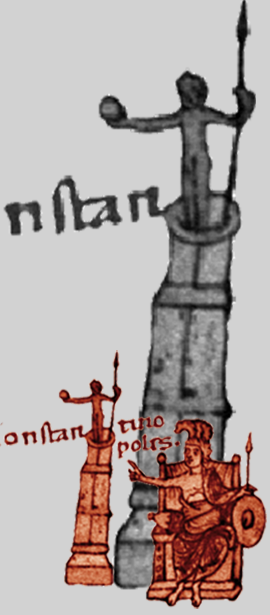Greek Scholia and Medieval Greek
(FWF Project P-30775-G25 01-07-2018 – 31-12-2021)
Based on the study of late Byzantine textbooks, in particular on the comments on the Greek classics, this project aims to contribute to a better understanding of how the Byzantines learned to use Medieval Greek, and how they read the texts that formed their intertextual competencies.
The Byzantine schooling system was not an anachronistic cult of the past, nor were texts written in high-register Greek meant to display sterile erudition. On the contrary, medieval authors would actually address their contemporaries, all in a manner which could bear comparison with the model texts from their past: “For one reason” – says Christophoros Zortros in his Exhortation – “For one reason we study the texts of the wise men of the past and do not refuse to converse with the dead. What is this reason? To have a sharp mind, apt to generate thoughts, and to have a versatile tongue, apt to express what we think <to our contemporaries>.”
This project’s goal is to generate a paradigm shift in the study of the various registers of Medieval Greek and its literature, enabling us to get closer to the original speech community’s perspective, both in matters of linguistic description and textual interpretation.
By applying recent insights from semiotics, socio- and cognitive linguistic theories to the study of Medieval Greek language and literature, this project will prepare the first critical edition of the Moschopulean scholia on Sophocles’ Ajax and Electra.



